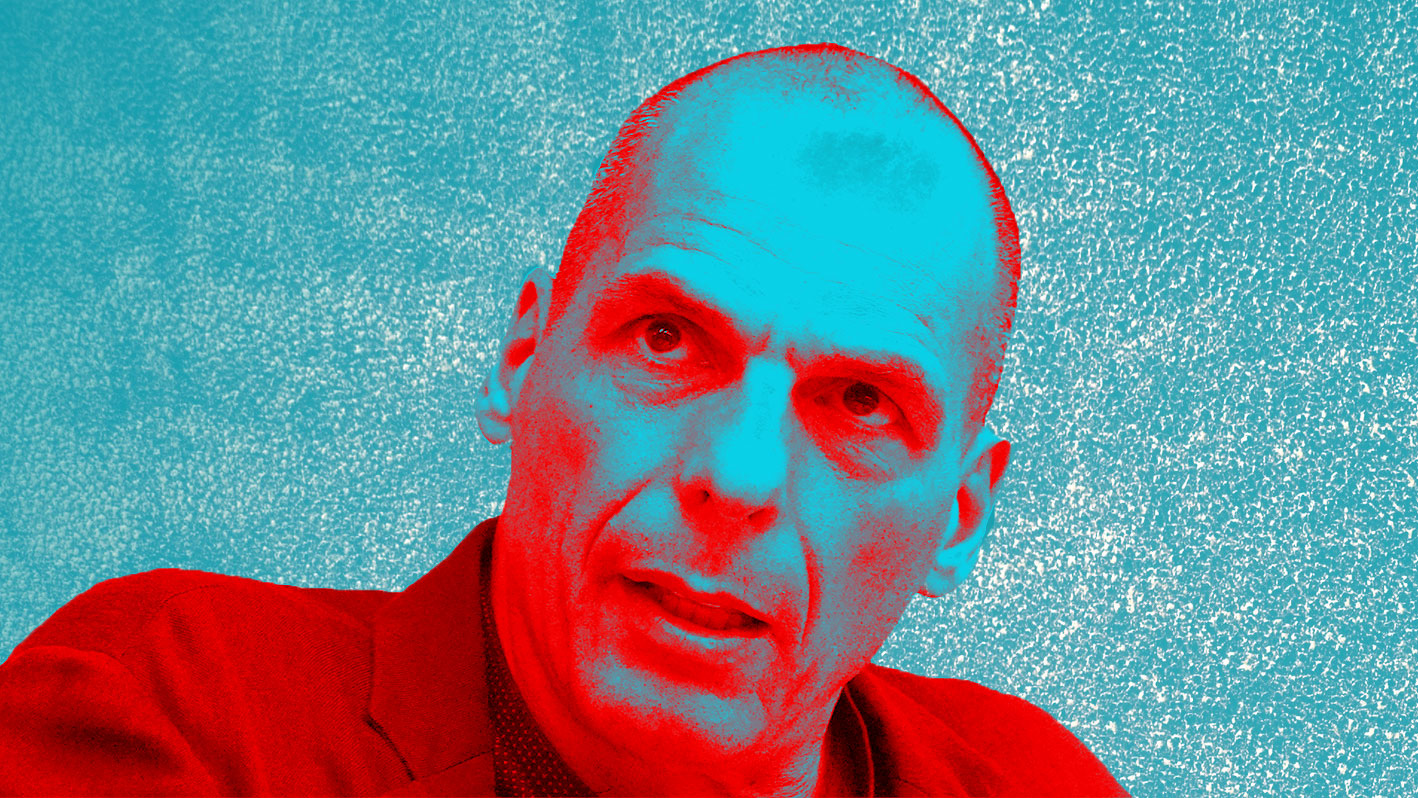How to fight the tech aristocracy » IAI TV
Digital platforms are creating new marketplaces and internet prosperity, but they are ruled by Silicon Valley despots with little or no accountability. Users and workers have become the hapless subjects of online business empires. Only when we understand digital platforms for what they are — institutions as powerful as the state — can we start working to democratize them, writes Vili Lehdonvirta.
“Is Microsoft a digital nation and does it have a foreign minister?” asks an article in The economist. “Apple is basically a small country now,” he claims The Atlantic. “Who needs government when you have Amazon to run things,” one columnist quips The guard.

SUGGESTED LITERATURE
Could Blockchain End Big Tech?
By WesselReijers
These are not just empty metaphors: the value of goods traded on Amazon is now higher than the gross domestic product of most countries. The amount of money Amazon makes by cutting its merchants’ earnings is far greater than what most governments can collect in taxes. And when something goes wrong and there is a dispute between buyer and seller, Amazon steps in to investigate the fraud, decide, punish and compensate the victims. In almost every aspect of life and business – from shopping to looking for a job, from entertainment to finding information, from social networking to dating – tech giants are now acting as a kind of digital government, setting the rules we must follow.
___
Our digital leaders enjoy immense power without a proper level of accountability.
___
But all is not well in our new virtual “states”. Our digital leaders enjoy immense power without a proper level of accountability. And they are often found abusing that power. Once Amazon got big enough, no book publisher could afford to get away from it. Founder Jeff Bezos instructed his managers to hunt down publishers like a cheetah hunts down an ailing gazelle. If a publisher tried to fight back, the platform would simply stop recommending their books and instead direct customers to what the competition has to offer. Publishers had no choice but to let Amazon “tax” their profits.
Or think of Apple, the first trillion-dollar company in history. For many years, the most popular music app on the Apple App Store was Spotify. It first appeared in search results for music. Then one day Apple launched its own music app, and suddenly Spotify fell in search results — not second, not third, but 23rd — even behind non-music-related apps. Apple had used its government-like power over the global app economy to break the rules and make a competitor disappear.
What should I do? According to economic theory, if a company mistreats its customers or suppliers, they should vote with their feet and switch to a competitor. To the extent that this is not the case, this suggests that competition has somehow collapsed and should be restored through regulation. Competition experts on both sides of the Atlantic are eagerly debating how to update industrial age competition rules for the platform age.
___
What if, in finding ways to hold big tech accountable to humanity, we took the idea of tech giants more seriously than governments?
___
An alternative approach would be to say that tech platforms are now part of our essential infrastructure and we should regulate them as we would regulate other natural monopolies like water and electricity. This is partly what the European Union’s new Digital Markets Act does: it labels big platforms “gatekeepers” and lists a handful of things they must and can’t do, such as: B. Favoring their own products in search lists. This approach is great as much as it can be, but it’s static and doesn’t keep up with the new techniques tech giants are developing to exploit their power. Regulatory approaches are also only really available to powerful nations who can impose their will on the tech giants, while the rest of the world’s internet users are left as rule-setters with no say in the process.

RECOMMENDED VISIT
The new ruling class
With Yanis Varoufakis
What if, in finding ways to hold big tech accountable to humanity, we took the idea of tech giants more seriously than governments? No one believes that governments can be held accountable simply by forcing them to compete with other governments for citizens. Nor does anyone believe that governments can be held accountable simply by imposing some do’s and don’ts on them. So what if, instead of taking inspiration from how our grandparents treated capitalists, we took inspiration from how our ancestors treated aristocrats, and began to apply the tools that humanity has developed over millennia to deliver government to its people accountable to?
Digital platforms should have a “constitution” that defines what powers platform administrators can exercise and what fundamental rights users are entitled to. Platforms are already halfway there as they have all the terms and conditions that purport to govern the relationship between the platform and its users. But the wording is deliberately too vague to protect users or limit administrators’ powers.
In the platform economy, there should be “rule of law” in the sense that administrators’ policies and decisions—including any decisions made by automatic algorithms—should be based on the platform’s “constitution” and other “laws.” Users, including individuals and companies, should have the right to challenge the “lawfulness” of decisions affecting them in an independent “judicial” review. And most importantly, users should have a say in the making and changing of the “laws” — no matter what country in the world they happen to be living in. Through these and other means, we could hunt down digital lords just as we did previous aristocrats.
___
Digital empires have entered a phase of revolt, with platform democracy as the logical and formidable goal.
___
But how could such lofty goals ever be put into practice? Consider the following. Almost every country in the world has been, at some point in its history, more or less the personal property of a man, woman, or group of people. For example, the proud state of Virginia in North America started out as a literal venture-backed start-up company. Its business model was similar to Amazon’s: attracting artisans from Europe to set up shop and do business, tax them and return dividends to shareholders in England. The entire operation was funded by venture capitalists and public offerings, and managed by a board of directors remotely from London.

SUGGESTED LITERATURE
We can’t tame big tech
By Martin Moore
Suffice it to say that these governance arrangements did not last. Tartisans began demanding a say in the running of the place. Now the Democratic Commonwealth of Virginia is one of the constituent parts of the United States of America. In Virginia, this transformation from a society to a commonwealth took a century of strife to unfold. But the internet has so far zoomed through history at amazing speed. We can already see rebellions brewing in the digital colonies – gig workers protest; App Developers Rise Against Apple; a strike by 20,000 Etsy merchants. Digital empires have entered a phase of revolt, with platform democracy as the logical and formidable goal.